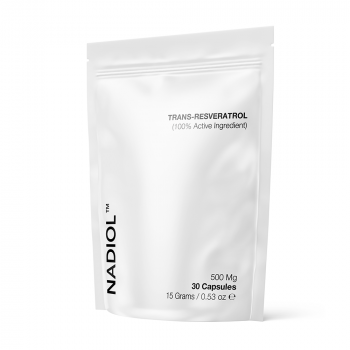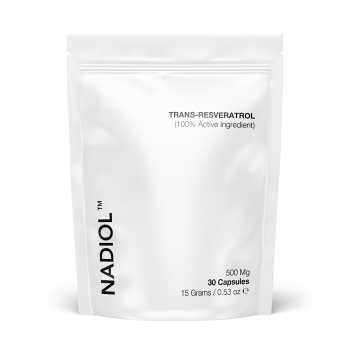What is Trans-Resveratrol?
Resveratrol is a stilbenoid that has been used for its antioxidant qualities for centuries. Resveratrol is a substance found mostly in red grapes and goods manufactured from them like wine and juice. It may aid in the treatment of hay fever and fat loss.
One of resveratrol’s two geometric isomers is trans-resveratrol. It is the active element in resveratrol supplements with possible health benefits due to its structural features. The backbone of trans-resveratrol is planar, whereas the backbone of cis-resveratrol comprises two primary planes.
Resveratrol may have a wide range of physiological effects, notably blood vessel expansion and a decrease in blood clotting. It may also aid the body in fighting diseases by reducing pain and swelling, lowering blood sugar levels, and assisting the immune system.
High cholesterol, cancer, heart disease, and various other illnesses are all treated with resveratrol. However, there is no good evidence to support the use of resveratrol in any capacity.
How does Trans-Resveratrol Work?
The DNA of a cell is protected by resveratrol, and it is a powerful antioxidant. Antioxidants can help in cell protection against free radical damage. Pollution, sunshine, and our body’s natural fat-burning produce free radicals, which can cause cancer, ageing, and brain damage.
Natural Sources of Trans-Resveratrol
Resveratrol is a phenolic molecule generated in small amounts naturally by various plants, fruits and vegetables such as, berries of Vaccinium Species, Red Grapes, Cocoa and Japanes Knotweed.
Potential Side Effects of Trans-Resveratrol
In normal doses, Trans-Resveratrol is considered safe for consumption.
Do not exceed recommended daily intake. Pregnant or nursing mothers, children under the age of 18, and individuals with a known medical condition, should always consult a physician before using.
Resveratrol does not appear to have side effects at short-term doses (1.0 g). Otherwise, at doses of 2.5 g or more per day, side effects may occurs, like nausea, vomiting, diarrhea and liver dysfunction in patients with non-alcoholic fatty liver disease.
Trans-Resveratrol Dosage
Research and clinical trials suggest that the optimum dosage of Trans-Resveratrol lies between 500mg to 100mg per day.
Trans-Resveratrol Benefits
Resveratrol has been touted as having numerous health benefits, including preserving the heart and circulatory system, decreasing cholesterol, and preventing clots that can lead to heart attacks and strokes. It has been shown in animal experiments to reduce blood sugar levels. Since resveratrol is an antioxidant, it is frequently advertised as a way to reduce the risk of cancer.
In animal experiments, resveratrol has also been shown to reduce brain plaque concentrations in Alzheimer’s disease. However, all of these areas lack well-controlled human clinical trials, and many of the resveratrol assertions are based on animal research in mice. Resveratrol is a dietary supplement that the Medicines and Healthcare products Regulatory Agency (MHRA) has not approved for any purpose. There have been no definitive studies establishing optimal doses, usage, long-term safety, or effectiveness.


